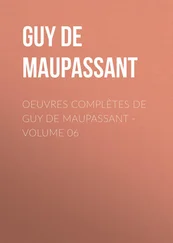In particular, she dwelt at great length on her one visit to New York, where she and her companions had plucked up the courage to storm the lobby of the Waldorf-Astoria looking for movie stars and from there, in a moment of insane bravado, pressed an assault on the restaurant, requesting a table for luncheon. They got one, it being an unfashionable, slack hour, and they servicewomen in the uniform of an ally. It was the uniform, Vera once again explained to her brother, which earned her the right to eat in a hotel that numbered among its guests millionaires, European nobility, and the stars of stage and screen.
Later, they took in all the city’s tourist sights, saw Radio City Music Hall and the high-kicking Rockettes for whom they harboured a mild contempt as frivolous women who did not appreciate the seriousness of war and the sacrifices it demanded. They went to the top of the Empire State Building and then uptown to see Grant’s Tomb.
These were the things she wrote to Earl, to mark the changes in her. There were other things of which Vera was scarcely aware and, if she had been, could not have written of to a brother.
Old friends like Phyllis and Mabel might have thought that life in the Army had led to a deterioration in her manners and turned her just a tiny bit vulgar and unladylike. They would certainly be alarmed to see the way she drank beer, straight out of the bottle rather than a glass, and how, when she was tight, she would rise unsteadily to her feet and say loudly, in mixed company, “Make way, boys, this lady’s got to tinkle.”
Somehow, too, the promises which Vera had made to herself to improve her mind had been neglected. She only glanced at the war news in the papers and had given up attempts to read books in the barracks during the evenings. The hubbub there was too distracting, her attention snagged on bits of camp gossip and talk of men. Most evenings she spent playing cribbage with a homesick recruit from Newfoundland who cried in the shower, believing tears couldn’t be detected in the midst of all that streaming water. But as the case of that girl proved, Vera was learning it was impossible to hide anything in the Army, or hide from anything. Like sex. She was getting sick and tired of being importuned and bothered by soldiers. The young ones were no better than beggars, all beseeching mouths and beseeching hands. They fumbled at you on the dance floor and in ill-lit doorways. What was worse, they struck sentimental poses and talked of dying because their bragging, lying friends told them that never failed to produce the desired result. To Vera it was exasperating and wearying, fending off this desperate stroking and fondling. They were nice enough boys but fools. Couldn’t they see that all this talk of death sounded ridiculous standing under a lamppost in Kitchener?
If you steered clear of the young heroes, that left only the tough rinds and peels, the vets of the Great War who had reenlisted, been judged unfit for active service, and assigned duties as drill and gunnery instructors. Vera preferred them to the boys. They were more patient and charmingly persistent. A number of times when she had drunk too much Vera had permitted them liberties. For none of these old men did she feel an individual passion but at certain times she was aroused to an impersonal excitement when a hand crept to a stocking top, or closed on her breast, muffled in its khaki tunic. Eyes pressed tightly closed, she would ask herself, Why not? Why not find out? Why not get it over with? But she didn’t. Vera was put off by the element of struggle in it all, by their I win, you lose attitude, by the feeling they wanted to take her, to have her. That was the one satisfaction they would never get.
Not surprisingly, none of this found its way into her letters to Earl. The picture she drew of herself was incomplete. In reality, the correspondence of Vera and her brother was the correspondence of shadows, a record of one memory speaking to another, of two people who grew dimmer and dimmer as the months became years and the memories grew more unreliable. Their father was the wall upon which the shadows met. Because Vera knew he read her letters to Earl, she could never ask the questions that plagued her. How is he treating you, Earl? Are things better now that I’m out of his hair? Earl, are you happy? She had to rely on what she could divine from the notes written on lined pages torn from a school exercise-book, the words thick and clumsy-looking because of the heavy-handed way Earl drove his fountain-pen across the paper. The childish, immature way in which he expressed himself was never remarked by Vera. In her mind, he grew no older, was as she had left him.
Got better marks from the new teacher. Mr. Mackenzie joined up on the school trustees so we have a lady teacher now. She is not so strict and owly as Mackenzie. I got specs now. Catch better with them than before, but still am no great shakes at ball. Isn’t in the cards I guess .
No, Vera supposed it wasn’t. Earl had sent along a photograph of himself in his baseball uniform. She was shocked to see him suddenly shot up tall and thin as a reed, his Adam’s apple looking like an orange in a Christmas stocking, and his new glasses throwing sun back into the camera in a brilliant blur. It was typical of Earl to have a picture of himself taken in baseball uniform, not wearing his glove but absent-mindedly clutching it by the webbing so it hung, limp dead leather, like a trophy of the hunt, a strange beast pulled from the sea, or huge bat plucked from darkness. Oh dear, Earl, Vera thought, shaking her head.
Reading between the lines, Vera could not always piece together the actual state of things in Connaught. Much of what Earl told her was communicated offhand, by the by. In January of 1944, in a letter written to thank Vera for the present she had sent for his fifteenth birthday, Earl passed on the momentous news that his father had taken over the town garage and hired himself help.
Dad has taken on a man with a glass eye. Dad says men are hard to come by with the war but since this one has a glass eye he can’t fight. His name is Mr. Stutz and he comes from somewhere down the line, Kimberley I think .
We got him because Dad says he is tired of doing bull-work his time of life. From now on Dad says Mr. Stutz can haul freight and he will sit on his behind doing the easy stuff like showing pictures and pumping gas for a living. Dad says Mr. Stutz is a good worker but has opinions. I seen him smoking so he isn’t a Jehovah’s Witness although he’s death on drinking. That’s how he lost his eye. Somebody drunk poked it with a pencil or something .
Mr. Stutz is stronger even than Dad. Friday he carried an engine block across the shop on a dare. Was Dad ever mad when he heard. He said he could of hurt himself and been laid up and lost to him .
Mr. Stutz figured prominently in Earl’s letters from that time on. He had clearly made an impression on her brother and perhaps beyond. In one of Earl’s letters she came across a cryptic line. Dad is better since Mr. Stutz came . How exactly was this to be taken? Did he mean her father was feeling physically better now that Mr. Stutz had relieved him of heavy work, or did he mean that Mr. Stutz was exerting some kind of steadying influence on her father, discouraging his wild, erratic behaviour? She wished she knew. Vera often worried about Earl, partly out of guilt, she supposed. Her brother had always needed someone to look out for him, to take his side. Maybe Mr. Stutz was doing that. Often during lulls in the clamour of the kitchens, she thought of the man she had cast in the role of her brother’s protector. However, try as hard as she might, she could only imagine him one way – as a man moving stiff-legged in a sailor’s rolling walk, arms pulled straight by something heavy – a keg of nails, an anvil, an icebox which buffeted his thighs with every lurching step he took. That was Mr. Stutz to Vera.
Читать дальше












